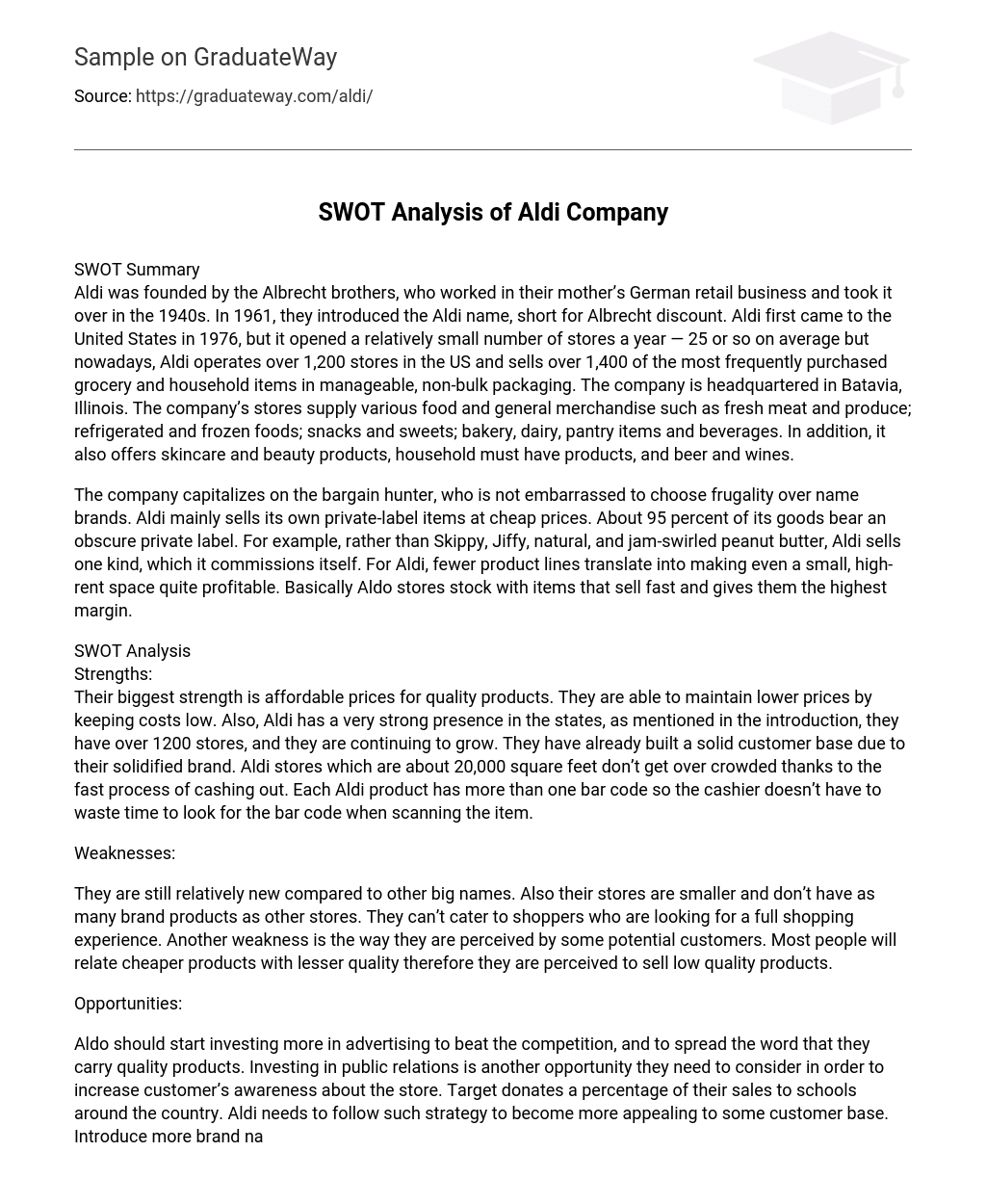SWOT Summary
Aldi was founded by the Albrecht brothers, who worked in their mother’s German retail business and took it over in the 1940s. In 1961, they introduced the Aldi name, short for Albrecht discount. Aldi first came to the United States in 1976, but it opened a relatively small number of stores a year — 25 or so on average but nowadays, Aldi operates over 1,200 stores in the US and sells over 1,400 of the most frequently purchased grocery and household items in manageable, non-bulk packaging. The company is headquartered in Batavia, Illinois. The company’s stores supply various food and general merchandise such as fresh meat and produce; refrigerated and frozen foods; snacks and sweets; bakery, dairy, pantry items and beverages. In addition, it also offers skincare and beauty products, household must have products, and beer and wines.
The company capitalizes on the bargain hunter, who is not embarrassed to choose frugality over name brands. Aldi mainly sells its own private-label items at cheap prices. About 95 percent of its goods bear an obscure private label. For example, rather than Skippy, Jiffy, natural, and jam-swirled peanut butter, Aldi sells one kind, which it commissions itself. For Aldi, fewer product lines translate into making even a small, high-rent space quite profitable. Basically Aldo stores stock with items that sell fast and gives them the highest margin.
SWOT Analysis
Strengths:
Their biggest strength is affordable prices for quality products. They are able to maintain lower prices by keeping costs low. Also, Aldi has a very strong presence in the states, as mentioned in the introduction, they have over 1200 stores, and they are continuing to grow. They have already built a solid customer base due to their solidified brand. Aldi stores which are about 20,000 square feet don’t get over crowded thanks to the fast process of cashing out. Each Aldi product has more than one bar code so the cashier doesn’t have to waste time to look for the bar code when scanning the item.
Weaknesses:
They are still relatively new compared to other big names. Also their stores are smaller and don’t have as many brand products as other stores. They can’t cater to shoppers who are looking for a full shopping experience. Another weakness is the way they are perceived by some potential customers. Most people will relate cheaper products with lesser quality therefore they are perceived to sell low quality products.
Opportunities:
Aldo should start investing more in advertising to beat the competition, and to spread the word that they carry quality products. Investing in public relations is another opportunity they need to consider in order to increase customer’s awareness about the store. Target donates a percentage of their sales to schools around the country. Aldi needs to follow such strategy to become more appealing to some customer base. Introduce more brand names in the stores, could be another opportunity for them
Threats:
Their biggest threat is competition. Stores like Walmart, Target, Costco etc.…are all fighting for the same customer. They offer a more diversified line of products and also try to offer lower prices. In Europe their biggest competitor in the company we are launching in Detroit, Lidl.
-Clifford, S. (2011). Where Walmart failed, Adli succeeds. The New York Times. Retrieved from nytimes.com -Aldi.com





